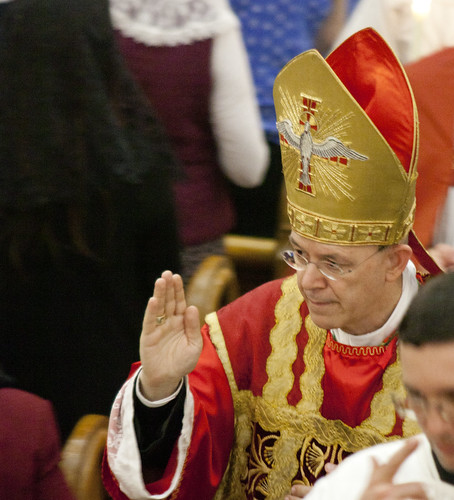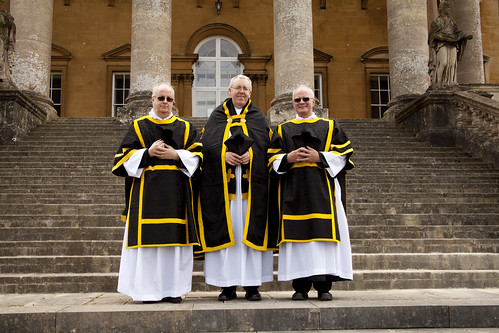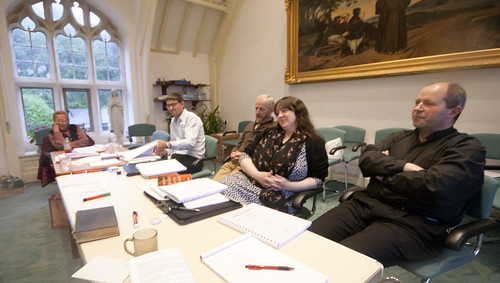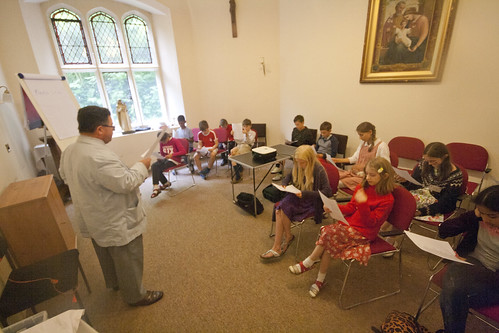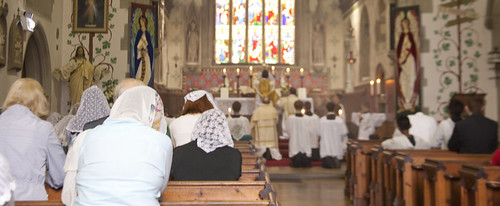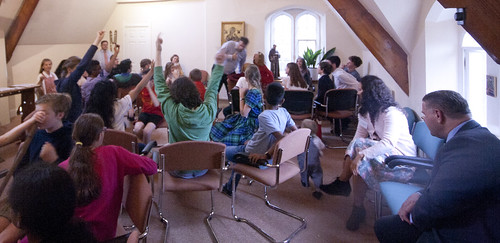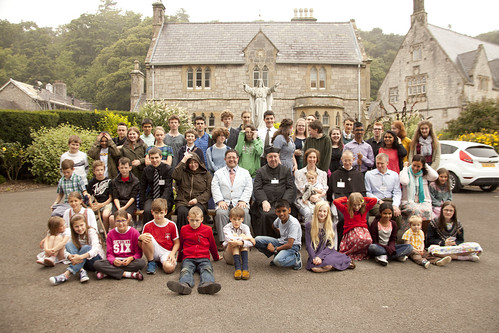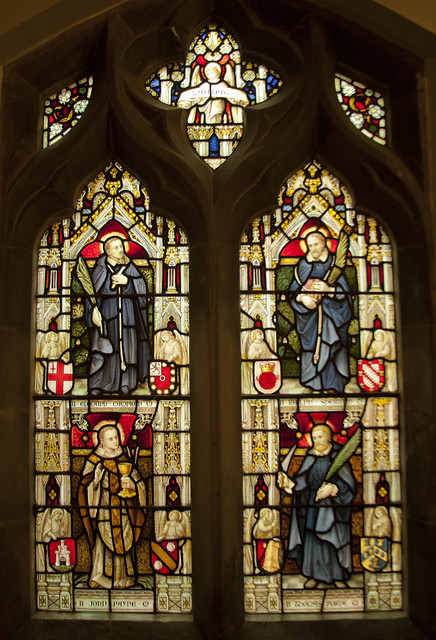 |
| Top left: St Edmund Campion, top right St Ralph Sherwin; bottom left St John Payne; bottom right Bl John Ford All priests, tortured for information and executed on trumped up charges of treason under Elizabeth Tudor. Stained glass from St Edmund's College Ware. |
Historic Crimes: Repentance and Reparation
Part 1
Part 2
Part 3
--------------------------------------------
Further to my posts about 16th and 17th century Anglicanism and the Islamic militants of today, a similar argument has now been made in a mainstream publication, The Week, by its Senior Correspondent, Michael Brendan Dougherty. Dougherty's focus is on the policies which led up to, and responded to, the Irish Potato Famine of 1847: much closer to home than the Tudor persecutions. He makes an interesting point about local dissidents being used as a proxy for foreign enemies, a point related to something I have been saying about the problem of the Church being aligned too closely with the decadent West.
In this post, however, I want to explore another aspect of the problem. If we are to talk about the past, and the bad things which happened there, which may or may nor have parallels with the present, the question arises of the what attitude the modern successors of the evil-doers should have to it.
This problem is more acute for the Catholic Church than for most religious groups, for two reasons. One is that it is the oldest institution on earth, of which one can say: this man here is the lineal successor of that one from the distant past, with a recognisable institution around him. The English monarchy is not as old as the Catholic Church by nearly five centuries, on the most generous analysis, and I can't think of any other institution around today as old as that. Almost any event you care to mention in European history since about the third Century has the Catholic Church as a protagonist, and often she is the only one still around to shoulder any blame which might be going.
The other reason is that the Catholic Church does not repudiate her past teaching. As I remarked in my posts on Anglicanism, Anglicanism today is completely different from the Anglicanism of the 16th century. Modern Anglicans can, if they like, simply say that Cranmer (for example) was wrong. Why not?

